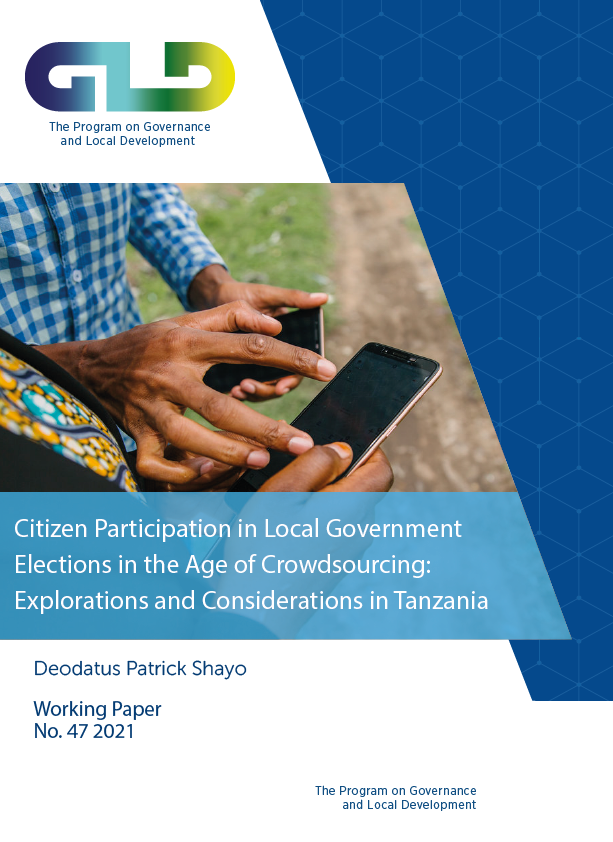No.47 Citizen Participation in Local Government Elections in the Age of Crowdsourcing: Explorations and Considerations in Tanzania
Deodantus Patrick Shayo
Abstract
This study sought to explore crowdsourced monitoring of local government elections and the challenges hindering citizen participation in monitoring processes through digital tools. Non-governmental election monitoring organizations have embraced technology and crowdsourcing methods for generating election information. Digital tools have changed how election monitors and citizens connect, observe, create, and share political information. This study explores and considers the 2014 local elections in Tanzania and was influenced by the fact that, despite the existence of local election crowdsourced monitoring initiatives, none of the existing research explores crowdsourced election monitoring at the local level. We used document analysis, first to review types of crowdsourcing and their deployment in election monitoring, and key informant interviews to explore issues surrounding citizen participation in local election monitoring through crowdsourcing. We found that, while crowdsourcing monitoring is used in local elections, citizen participation faces various challenges. Our analysis shows that, among others, trust, costs, poor preparation and crowdsource planning, the digital divide, and poor infrastructure are critical challenges facing local crowdsourced monitoring. The findings shine a light on the emergence of local election crowdsourcing monitoring and the challenges facing citizen participation through digital technologies. To build effective, crowdsourced local election monitoring, we propose opportunities to shape crowdsourcing citizen participation through digital tools in forthcoming elections.
A policy brief based on this paper is available here.
